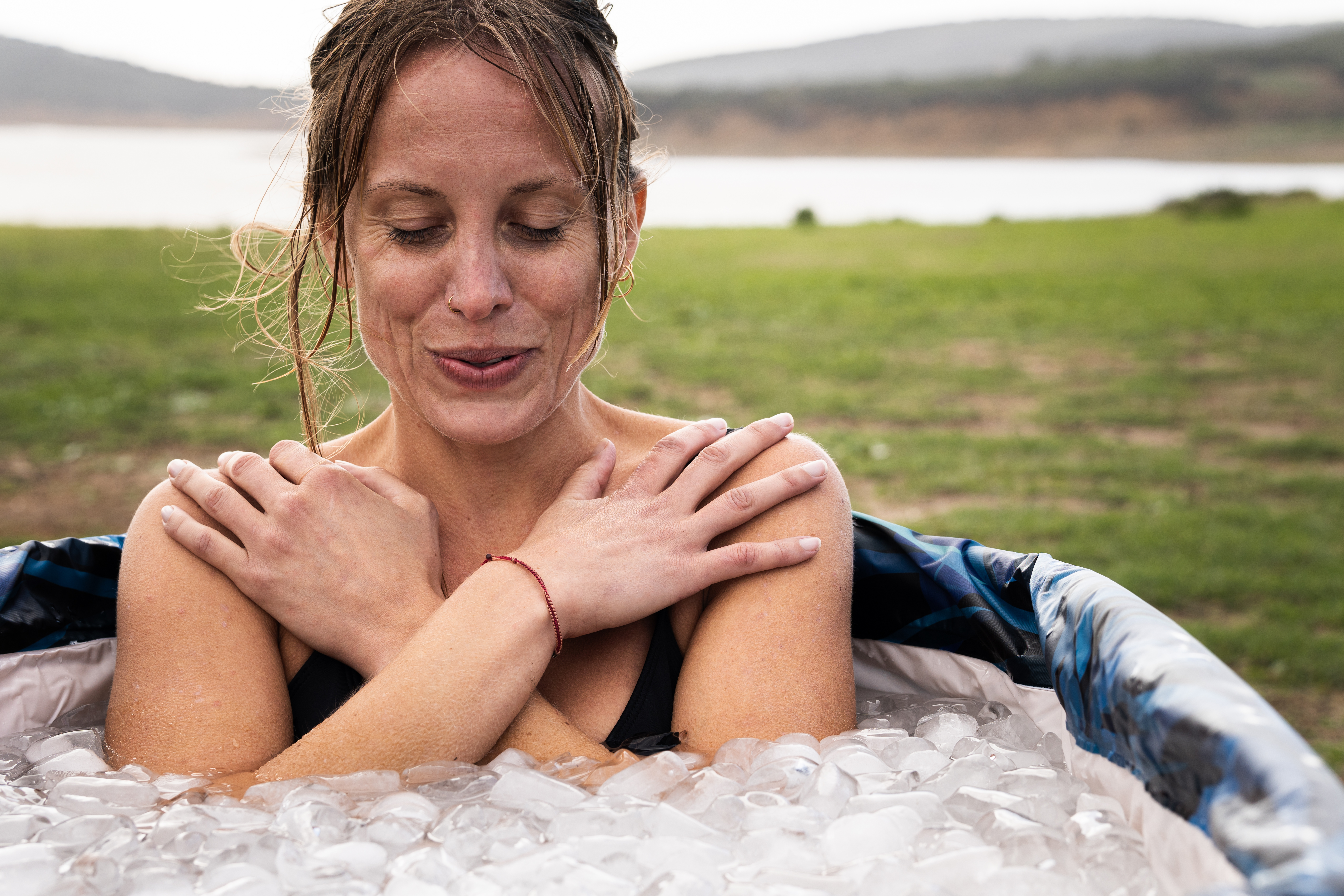News release
From:
From early ocean dips to ice-cold polar plunges, cold-water immersion is increasingly popular among athletes and wellness warriors. But how much of the hype is backed by science?
In the most comprehensive systematic review and meta-analysis of its kind, University of South Australia researchers have taken a deep dive into the effects of cold-water immersion on health and wellbeing.
Analysing data from 11 studies with 3177 participants, researchers found that cold-water immersion may lower stress, improve sleep quality, and boost quality of life.
UniSA researcher Tara Cain says the study reveals time-dependant and nuanced effects on health and wellbeing measures.
“Cold-water immersion has been extensively researched and used in sporting contexts to help athletes recover, but despite its growing popularity among health and wellbeing circles, little is known about its effects on the general population,” Cain says.
“In this study, we noted a range of time-dependant results. Firstly, we found that cold-water immersion could reduce stress levels, but for only about 12 hours post exposure.
“We also noted that participants who took 20, 60, or 90 second cold showers reported slightly higher quality of life scores. But again, after three months these effects had faded.
“Benefits may be gained from cold showers as well, with one study reporting that participants who took regular cold showers experiencing a 29% reduction in sickness absence.
“We also found some links to cold-water immersion and better sleep outcomes, but the data was restricted to males, so its broader application is limited.
“And while there have been many claims that cold-water immersion experiences can boost your immunity and mood, we found very little evidence to support these claims.”
Cold-water immersion involves immersing the body partially or fully in cold water, in temperatures typically ranging from 10-15 degrees Celsius, and in this study, data was only included if exposure was at or above chest level, and for a minimum time of 30 seconds. It included cold showers, ice baths and cold plunges.
Co-researcher, UniSA’s Dr Ben Singh says the study also showed that cold-water immersion caused a temporary increase in inflammation.
“At first glance this seems contradictory, as we know that ice baths are regularly used by elite athletes to reduce inflammation and muscle soreness after exercise,” Dr Singh says.
“The immediate spike in inflammation is the body’s reaction to the cold as a stressor. It helps the body adapt and recover and is similar to how exercise causes muscle damage before making muscles stronger, which is why athletes use it despite the short-term increase.
“Knowing this, people with pre-existing health conditions should take extra care if participating in cold-water immersion experiences as the initial inflammation could have detrimental health impacts.”
Researchers say that while the findings highlight the potential benefits of cold-water immersion, they also underscore the highly time-dependent and contextual nature of its effects.
“Whether you are an elite athlete or everyday wellness seeker – it’s important to understand the effects of what you put your body through,” Cain says.
“Right now, there isn’t enough high-quality research to say exactly who benefits most or what the ideal approach is to cold-water immersion. More long-term studies, among more diverse populations, are needed to understand its lasting effects and practical applications.”
Notes to editors:
The full paper - Effects of cold-water immersion on health and wellbeing: A systematic review and meta-analysis - by Tara Cain, Dr Jacinta Brinsley, Dr Hunter Bennett, Dr Max Nelson, Prof Carol Maher and Dr Ben Singh is available online: https://journals.plos.org/plosone/article?id=10.1371/journal.pone.0317615
…………………………………………………………………………………………………………………………



 Australia; International; SA
Australia; International; SA


